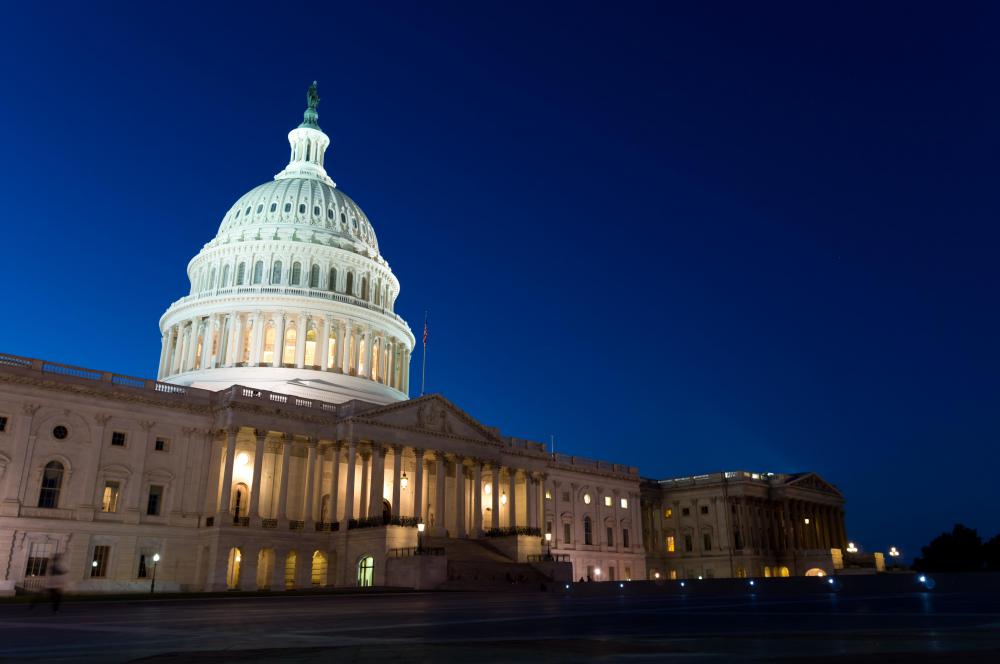At WiseGEEK, we're committed to delivering accurate, trustworthy information. Our expert-authored content is rigorously fact-checked and sourced from credible authorities. Discover how we uphold the highest standards in providing you with reliable knowledge.
What Exactly do You do When You "Caucus"?
A caucus is a meeting of like-minded people who gather to discuss a particular issue and to reach a decision on it. These meetings are very important in politics; in legislative bodies, members of the same party frequently come together to create strong legislation that the whole party can support. A caucus may also meet to make decisions about party policy. People also hold meetings like this in the corporate world to determine corporate policy and decisions.
The origins of the word are a topic of dispute. The first known appearance of the term in reference to a gathering is from 1763, when the Caucus Club met in Boston. Some etymologists believe that the word comes from a Medieval Latin word that means "drinking vessel," in a reference to the beverages which undoubtedly accompanied such meetings. Others think that it is derived from an Algonquin word which means "counselor," as some Native Americans engaged in a decision making process similar to that of the modern caucus.

For Americans, the word "caucus" usually conjures up an image of the Iowa Caucus, an extremely complex political event which plays a major role in Presidential elections. This is actually a holdout from an older political system in the United States; in the early years of American independence, congressional representatives met in caucuses to decide the party nominations for president, bypassing the voters altogether. When individual voters were allowed a say in the process, several states created a caucus process, rather than asking voters to simply vote on ballots.
The process involved in the Iowa Caucus can be confusing. Essentially, in early January, Iowans travel to thousands of locations which are scattered throughout the state and broken up by party. The attendees vote for delegates representing particular candidates who will be sent to county conventions. At the county conventions, delegates are selected for the state convention, at which point Iowa's preference for the Presidential nominations will be determined. Delegates are sent from this convention to the National Party Conventions, where Democrats and Republicans decide on their nomination for President.
At the caucus, voters meet and discuss the candidates before casting their votes, making the meeting an interactive voting process. Democrats vote by raising their hands or moving to various areas of a room dedicated to specific candidates. After this initial vote, a coordinator decides which candidates are viable, inviting people who voted for nonviable candidates to vote again. For example, in a caucus where voters are asked to decide between candidates A, B, and C, there might be only a handful of voters supporting candidate B, meaning that he or she does not merit a delegate. When asked to vote again, these voters can support candidates A or C, ensuring that they get a say in the nomination. The number of delegates is based on the number of people in the area represented by the caucus.
Republicans have a simpler system in Iowa; they simply cast secret ballots which are tallied, and delegates are sent on the basis of how many votes each candidate received. Both Democratic and Republican delegates are expected to represent their candidates at the various conventions they attend, expressing the interests of their individuals caucuses.
AS FEATURED ON:
AS FEATURED ON:











Discussion Comments
Malena - Caucus times are determined by whoever runs or sets up the caucus. For the 2008 US presidential campaign for example, caucus times vary among the parties, states, and precincts. But, to give a general idea, I think caucuses for this race typically last anywhere from 1-4 hours with 2-3 hours being the most common length.
i wonder the same thing. this will be my first caucus this year, and i'm looking forward to comparing voting in a primary to the caucus process. my sister just went to the democratic caucus in kansas today and said that it was pretty rowdy and chaotic.
How long do caucuses last? Is the time set by the Republican or Democratic National Committees? Or does it run on as long as caucus members want it to?
Post your comments